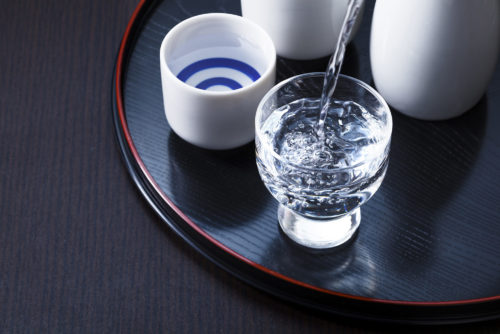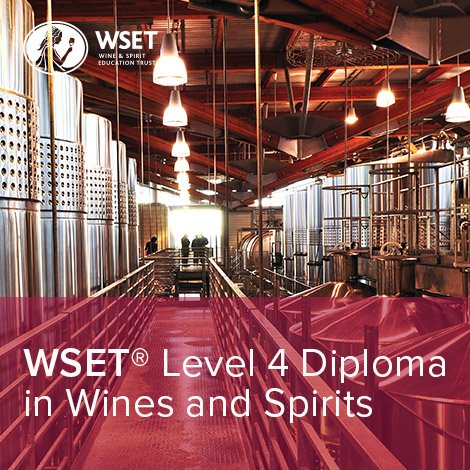
by Adam Chase | Dec 26, 2017
I hear from many people with interest in Grape Experience WSET courses who are unsure where to start or if they want to make the commitment. Those who do take the plunge always feel great about it. If you are thinking you would like to explore WSET Wine, Sake or Spirits education there is no time better than now!
How to Decide Where to Begin:
WSET courses are broken out by “Levels,” and these terms can be confusing. Each level has a specific end goal or learning outcome regardless if it is for Wine, Sake or Spirits. For Wine and Spirits most people have enough knowledge already to skip right to Level 2. Sake is lesser known and Level 1 may make the most sense.
Level 1: Define and Understand
Level 1 focuses on true beginner knowledge. We answer questions such as:
- What is wine or sake?
- What basic styles does it come in – dry, sweet, sparkling, red, white and rosé?
- What is the best way to serve it – temperature, glassware, food pairings
I often say for the wine courses that if you know that Chardonnay is a white grape that makes white wine that should be served chilled, and that Cabernet Sauvignon is usually a red wine, then it might make more sense to start at Level 2.
For Sake, however, Level 1 can be an easy way to start exploring a beverage category that is growing each day. We offer Level 1 Sake a few times each year with the next courses starting this winter WSET Sake Class
Level 2: Identify and Describe
Level 2 is where most WSET wine and spirit candidates start. Courses under Level 2 are also fine as beginner classes but they go into more depth then Level 1. The goal here is for a student to be able to look at any major wine or spirit bottle and describe what is expected inside without having to taste it – that doesn’t mean that we don’t taste in Level 2 classes – we absolutely do and a great component of Level 2 is to build strong foundational tasting skills.
Students who take Level 2 often tell me that their confidence has skyrocketed when it comes to choosing or talking about wines and spirits. I think Level 2 provides a smoother, perhaps less risky entry into the WSET system of courses, even for people with already strong wine knowledge. Our next set of Level 2 courses starts this February: Wine Courses for Beginners
Level 3: Explain
Level 3 is significantly more challenging than Level 2 and demands more study and participation time from the participant. Still, the depth of knowledge and tasting ability that comes from a Level 3 course is totally worth the effort. Level 3 courses do not have prerequisites.
The basic goal of Level 3 courses is for the participant to be able to explain the reasons why a wine or sake looks, tastes, and costs the way/amount it does. This Level deeply delves into natural and human forces that impact production and quality. Tasting plays an equal role to the theory here and students will certainly learn to blindly identify through sight, smell and taste how a wine or sake is made and its ultimate quality Level.
Level 4 Diploma: Analyze
Currently WSET only offers a Level 4 course in Wine and Spirits. This is a two-year program that requires participants first pass the Level 3 Wine course. The goal here is to learn to analyze the natural and human production factors, market trends and new technologies/approaches that are shaping today’s wine and spirit markets.
Participants build skills through first-hand, as well as book investigation into the major global wine and spirits production centers and companies. The course is incredibly challenging but well worth it!
So, there is no time like the present! Check out all of the WSET courses we offer and take the plunge!


by Adam Chase | Nov 28, 2017
[slider]Every WSET Certified Educator and Approved Program Provider brings new ideas and methods to the classes they teach. These approaches often put a unique spin that can make material more relevant to the geographic area and understandable for the student. Grape Experience over its 12+ year history has implemented ideas have helped students taking WSET courses gain more knowledge, confidence and success. I am honored that once again WSET has recognized me by shortlisting me for 2017 Educator of the Year.
In 2017, we introduced three major new approaches to enhance our WSET courses: The Systematic Approach to Theory, an alternate New World Syllabus for Level 3 Wine, and Sake courses in contextual settings. These adaptions to already great programs will further encourage students to challenge themselves and become more successful.
The Systematic Approach to Theory
Over the years I have found that most students focus their study time on tasting – particularly WSET Level 3 and Diploma candidates. This “trap” seems logical – many students believe they already know enough theory to pass an exam, and almost everyone I have met lacks some confidence in their tasting ability (even if they are great tasters!). Also, practicing tasting is fun – you get to drink and often be in a social/fun setting. The results on exams, however, suggest this is a mistake. Tasting pass rates are much higher than those for Theory. Often, I hear students leave a theory exam muttering, “I never thought they’d ask…”
The Systematic Approach to Theory that I, along with Grape Experience Educators, developed is a way to focus students on Theory and work it into their daily lives. It involves two simple components: Tasting for Theory and Teaching.
Every time a student tastes wine is an opportunity to study Theory. Yes, we are actually encouraging tasting but in a new way. Whether it is in a restaurant, bar, tasting group or any social setting, a student is encouraged to think theory. First, where is this wine made and what are the natural factors that impact its style (climate, topography, soils, etc.). Then, what are the options humans can take to further influence its style (blending, maceration and fermentation techniques, oak, etc.). We suggest a student carry a digital or paper notebook where they can make quick notes as to what they don’t know and need to look up. This paper trail better focuses a student on the key salient points.
The second element – teaching – helps a student commit to memory what they are learning. Teaching moments occur every day:
- When the student is out to dinner or at a bar with friends, pick a wine and explain to friends in detail the natural and human factors that go in to it – again using the notebook to jot down what they can’t remember/don’t know.
- At work find a wine each day and educate co-workers/customers throughout the day on that wine. Find reasons to build it into conversation.
- Create themed wine tasting social/practice events and educate friends and colleagues on a wine or region. In most cases the people being taught will be fascinated, while the student gets valuable study opportunity.
We have found that actually speaking out what you are studying better commits knowledge to memory than just writing it down. In Grape Experience WSET Diploma courses we start every session with a formal Systematic Approach to Theory exercise using real wines.
The New World in Level 3
The Level 3 in Wine that was introduced in late 2016 is perhaps the most innovative, best new WSET course ever. The course composes 15 sessions of which three cover New World countries. Students wanted more so we re-worked the syllabus to enable an additional New World session without adding more course hours. In doing so, we were able to create a different approach to New World geographies.
Grape Experience instructors clustered the major New World regions into like areas:
- The two largest geographies, both relatively warm but with multiple microclimates – Australia and North America – were split into two sessions one for white and another for red wines.
- Two smaller cooler climate regions – New Zealand and Chile – were taught together, as were the mostly warmer South Africa and Argentina.
The result is that students can in real time compare and contrast the natural and human factors that impact wine style, while focusing in on specific geographies important to their market. This “local” approach to a great course meets student requests without sacrificing any material.
Sake in Context
The WSET Levels 1 and 3 Sake courses demystify a new category of alcoholic beverages and expose students to the variety of sake production and style options. We found that, unlike wine or spirits, sake was completely new to most students. Rather than teach this program in a traditional classroom we brought it to the production and service sources – either teaching it at a Japanese Izakaya/restaurant or a sake brewery.
Sake students now have all around them the elements of production and service. The material in the course comes alive, as students have opportunities to interact with sake sommeliers and producers and explore on their own concepts in the lectures and written materials. The results so far have been greater engagement and stronger positive reviews for WSET Sake courses taught by Grape Experience.
I am proud that WSET has recognized all that we are doing to give students the best education opportunities we can. In 2012, we were given the Educator of the Year Award and this year I was shortlisted for the 2017 Educator of the Year. This is an honor for me personally but would not have been possible without a terrific team of certified educators behind me, as well as students really engaging in the material WSET offers. I look forward to continued innovation in the new year ahead.

by Adam Chase | Sep 7, 2016
How is sake made? Is it distilled? Brewed? Is it more like wine or spirits? Should I drink it warm? Cold?
Sake is a complex alcoholic drink that is gaining more attention in the US. More and more people are seeking out this ancient beverage – Would you like to learn more about sake?
Grape Experience is excited to announce we will be launching the new WSET Level 1 Certificate in Sake this fall. This new course is an introduction to sake and will answer these questions about sake and more!
As an introductory course it is intended to introduce production, ingredients, grades and styles of sake. It is designed for both consumers and professionals.
This course is great for sake enthusiasts who would like to learn about sake but aren’t ready to commit to the in-depth study of our Level 3 Certification. For industry professionals it is an excellent introduction to the growing category of sake, providing the knowledge you need to sell sake.
Learn how production methods can influence the style and category of premium and specialty sake. We’ll taste through various samples to demonstrate the complexity of this diverse beverage. Included in the course is a section on service and storage of sake, an important part of enjoying sake!
We will be offering this course in San Francisco this fall and in Boston in 2017. Level 1 Certificate in sake will provide a solid understanding of sake before continuing on to our Level 3 Sake Certificate. To enroll just click here: WSET Sake Class
by Adam Chase | Aug 9, 2016
One of the most common things I hear from people interested in the WSET program is “I want to take Level 2 but I can’t because I haven’t taken Level 1 yet.”
Let me set the record straight: you do not have to take Level 1 to take Level 2. In fact, for most people who have some basic wine knowledge I strongly recommend starting with Level 2.
Level 2 is the perfect entry into formal wine study and, as a course, builds a complete foundation for future learning or a confident, successful wine career. People enter Level 2 with various degrees of knowledge. Some people may know very little beyond grape names and wine brands – their foundation has a few key “brick” out, but needs to be more formally built. Other people may know quite a lot about a specific wine or wine region – Napa or Bordeaux for example – but have limited knowledge about other producing areas such Australia, Chile or Germany. For this person Level 2 fills in the holes and creates a solid wine knowledge structure.
Confidence is the key word to describe the outcome of a successful Level 2 candidate. The course focuses on creating a strong understanding of the major wine grapes and how they show themselves in regions across the globe. Level 2 provides a survey of wine styles and levels of quality. After Level 2, a student can look at any major wine label and identify how that wine should taste, its level of quality and relative price point. They can speak about, purchase and make recommendations on wine with confidence.
Level 2 also showcases how to taste like a professional. It introduces WSET’s famous Systematic Approach to Tasting, which creates an even playing field to compare and contrast all wines. During the 8 segments of the Level 2 course over 45 wines are tasted.
Level 2 delivers students enough knowledge to make them savvy wine consumers or assured wine professionals, but not so much as to overwhelm them. Grape Experience Level 2 classes are interactive and designed to be fun. People work together to figure out how to speak about a wine and creatively convey its attributes. There are no wrong answers or dumb questions. Instead, the class is a safe place to formulate new ideas, build better understanding and to network with other people.
The Level 2 course culminates with a one-hour, 50-question multiple choice exam. The exam tests knowledge learned in a fun, almost game-like way. I like to say it is sort of like playing “Who Wants to Be a Millionaire,” except you can’t phone a friend or ask the audience. What you can do is usually eliminate two of the four answer options.
So who is Level 2 really for? The answer is just about everyone. If you are thinking of taking a formal wine course or starting the WSET program than Level 2 is for you. If you are working in wine but want to enhance your knowledge to be better at your job or grow in your career, Level 2 is the place to start. If you are thinking about starting a career in wine or want to work in regions outside of the US than Level 2 is what you need to begin that process!
Grape Experience has several options available to join a Level 2 course. All can be found at https://www.grapeexperience.com/wine-and-spirit-school/beginner-wine-courses/

by Adam Chase | Jul 12, 2016
 The WSET Level 4 Diploma is one of the most sought after and challenging certifications in the wine industry. Grape Experience is one of the few select WSET providers in the world who have been given approval to offer the Diploma. The course of study involves passing six sub-courses or “units.” It is an understatement to say achieving Diploma certification is difficult. It takes maximum effort and knowing the best strategies to approach the enormous amount of material.
The WSET Level 4 Diploma is one of the most sought after and challenging certifications in the wine industry. Grape Experience is one of the few select WSET providers in the world who have been given approval to offer the Diploma. The course of study involves passing six sub-courses or “units.” It is an understatement to say achieving Diploma certification is difficult. It takes maximum effort and knowing the best strategies to approach the enormous amount of material.
Grape Experience has had tremendous success in getting many of our Diploma candidates over the finish line. We asked those now Diploma holders to share their top study tips. I have grouped them into five key areas below. Following their advice is not a guarantee of passing, but if you are thinking of taking on Diploma, incorporating their suggestions will put you in the best position for success.
Tip 1: Form a study group early on in the program
Everyone mentioned a study group as a main key to their success. Study groups should be not only for tasting, but also for theory. Just about all Diploma holders admitted theory questions were the most challenging part of the exams.
In person or virtual group meetings should happen every month if not weekly, and as long as two people attend, said one Diploma holder, it is worth getting together. For theory, Diploma holders suggest each week preparing a topic from a past exam and sharing essays or essay outlines. This can easily be done virtually with each member of the group submitting their essays/outlines via email or a platform like Dropbox.
Tasting sessions should be used to train the palate and enable you to start to get the key elements of wine styles by region. They also build confidence and cut the expense of having to buy all of the wines you need to taste on your own.
Tip 2. Utilize DAPS and the Study Support Sections of the WSET Global Campus
Most Diploma holders admitted that the Diploma Assessment Preparation Scheme (DAPS) for Unit 3-6 was frustrating. They love the idea that DAPS gives you real personal examiner feedback on exam questions, but noted the system was hard to navigate and that the feedback can range from very brief to overly harsh.
Still, everyone who commented here believed the frustration was worth it. “It forced me to practice exam style timed writing,” noted one Diploma holder. Another person commented that they had a better sense of what examiners looked for even when the feedback was brief. “You are really hurting your chances of passing if you don’t do DAPS,” bluntly stated a third Diploma holder. “Make it happen!”
Along with DAPS, the Study Support materials on the proprietary WSET Diploma web site, The Global Campus, were critical. One Diploma holder summed up the thoughts of most others, “I went through old exam questions each week and picked one to study. Then I figured out how much time I’d have on the exam and limited my writing to that amount. Only when I finished writing did I read what the examiner posted about how students actually did or what they showed as an example of a good answer. “
Some successful Diploma holders used the material on the Global Campus as the basis for a Theory grid for each region: with headings of Grape Variety, Climate, Soil, Viticulture and Winemaking. Other people made flash cards and either took them with them everywhere or used the Quizlet app to maintain them.
Tip 3: Teach Your Friends and Family
Many Diploma holders said that the more they talked with other people about what they were learning, the more it stuck in their head. Writing information in a notebook is not as effective at remembering it as when you have to speak it to someone else. This is likely because you actually have to think about the information you are conveying, respond to questions and organize your thoughts in a way that are not just bullets on a page.
One Diploma holder said that he “bored his partner and friends to death with explaining the techniques for making Hunter Valley Semillon and South African Pinotage.” In the end though, it definitely helped him cement his knowledge and his audience was rewarded with great free wine tasting opportunities.
Tip 4: Don’t Worry About Getting the Wine Right
Many Diploma holders said they often missed identifying the wines on the exam 100% correct, but still passed. It is more important to get the components and quality level of the wines right, rather than correctly stating what the variety and origin is. “The points are in the body of your tasting note – not in getting the wine type spot on,” said one Diploma holder.
Tip 5: Create a Study Schedule and Stick to It
The WSET gives an estimate of the minimum required study hours for each unit. Successful Diploma students said creating a weekly study schedule at the start of undertaking a unit and not diverting from it is critical. This means that you should block time off each week on your calendar for studying and not change it or make it a low priority. One person suggested “treating it like it is a doctor’s appointment that you can’t miss. If someone asks you to do something in that time and it was really a doctor’s appointment, you wouldn’t cancel it.”
Inevitably some study time will need to get cancelled for “life” reasons, but make sure that you build in extra contingency study hours and only give up your study time in a real emergency. At the same time, while you are studying, make sure to keep things in perspective. This is a course on wine and spirits – things that give people enjoyment – and so you too should find some level of fun in the program
Diploma is truly a rewarding experience. You meet other people, build your wine and spirit knowledge to an incredibly strong depth and, if successful, get one of the most respected certificates in the industry. It is also a prerequisite for the Masters of Wine program.
To begin Diploma you must first pass the WSET Level 3 Certificate in Wine. The next Diploma and Level 3 Certificate courses start at the beginning of August. For more information go to:
https://www.grapeexperience.com/wine-and-spirit-school/beginner-wine-courses/





